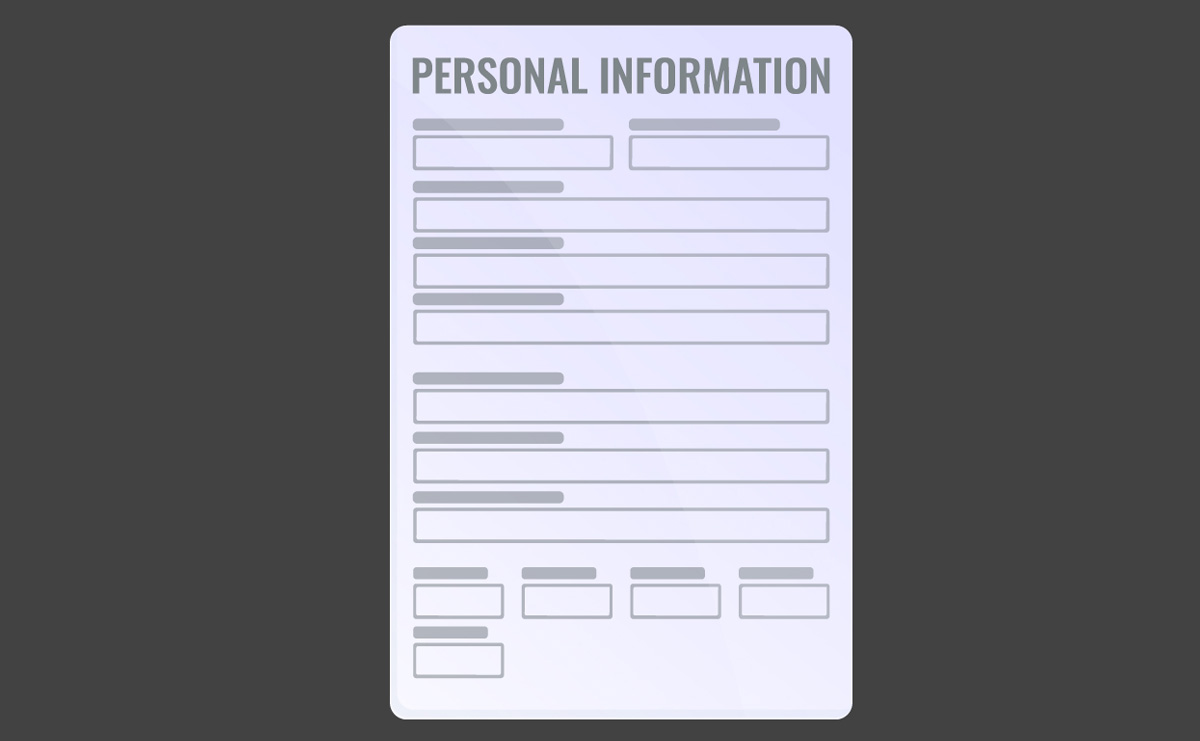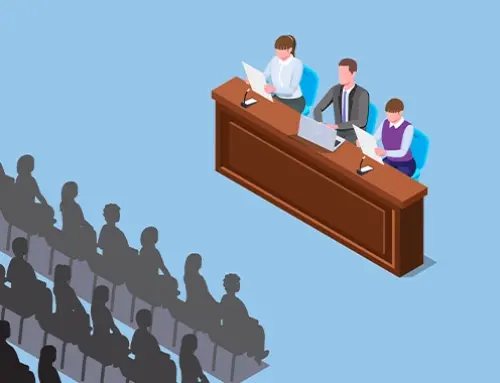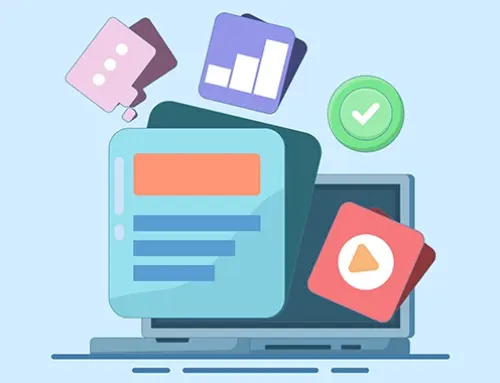Contents
7 Game-Changing Duties of a Legal Intake Specialist Every Law Firm Needs to Know
The intake specialist tends to be the unsung hero of a law firm’s client acquisition process. The point of contact for prospective clients, this professional oversees the entire process of legal intake from first contact to the onboarding of a new client. In most instances, a timely and professional response by an intake specialist can be the deciding factor in acquiring a new client or losing them to the competition. By working hard to obtain information, prescreening cases for compatibility and conflict, and facilitating clients through follow-up procedures, the intake specialist enhances productivity and compliance within the firm.
First Contact – The Legal Intake Specialist’s Critical First Impression
Speed Matters at First Contact
A legal intake specialist makes sure new client inquiries receive an almost immediate response. This quick action is crucial – one study found that waiting just 10 minutes (instead of 5) to respond can cause conversion rates to drop dramatically. Yet roughly a quarter of law firms still fail to respond to online leads at all, resulting in lost opportunities. By prioritizing speed, an intake specialist ensures your firm is among the standouts that follow up within minutes. This fast first contact greatly improves the chance of signing the client and prevents prospective clients from reaching out elsewhere. Notably, slow replies are a top complaint among legal consumers, so a speedy follow-up also avoids giving a bad first impression.
|
Metric |
2023 |
2024 |
|
Firms with no response |
27% |
27% |
|
Respond in under 5 min |
19% |
28% |
|
Median response time |
21 minutes |
13 minutes |
Table 1: Legal intake specialist – Lead response benchmarks for law firms (2023 vs 2024)
|
Aspect |
Value |
|
Attorneys who believe they respond quickly |
98% (survey) |
|
Firms responding to leads within 1 hour |
~50% |
|
Ideal response time expected by clients |
~15 minutes |
Table 2: Legal intake – Law firm response time: perception vs reality
Some firms even ensure an intake specialist (or answering service) is available after hours, so that evening and weekend inquiries also get a prompt human response.
Professional and Empathetic Greeting
How the intake specialist engages the client in that first interaction is equally important. As the firm’s representative, the specialist greets potential clients with a friendly, calm, and empathetic demeanor. Many clients are anxious or stressed, so a real human voice that listens patiently and shows understanding can immediately build trust. The intake specialist’s job is to make the caller feel heard and reassured that their case matters. This positive first impression not only comforts the client but also establishes a foundation of trust – a key factor in whether the person will ultimately choose to hire the firm.
Conducting Thorough Intake Interviews and Information Gathering
Comprehensive Questioning and Data Collection
One of the intake specialist’s core duties is to conduct an intake interview that captures all pertinent information about the prospective client’s case. After the initial greeting, the specialist asks the right questions to gather details such as the client’s contact information, the facts and timeline of their legal issue, and any relevant documents or evidence. They typically follow a standardized intake checklist or script to ensure nothing important is overlooked. For example, in a personal injury inquiry, the specialist will ask when and how the injury occurred, what medical treatment was received, and so on.
Accurate Data Recording and Entry
Equally important is recording this information accurately and organizing it for the legal team. The intake specialist enters the client’s details and case summary into the firm’s case management or CRM system, creating a record that attorneys can review. Accuracy is crucial – misspelled names or wrong dates can cause confusion later. A good intake specialist double-checks key facts and ensures everything is documented clearly. Many firms use digital intake forms or software that allow clients to input information online, which the specialist can then verify and add to the case file. By gathering comprehensive information upfront and recording it diligently, the intake specialist sets the stage for a smooth evaluation of the case and avoids having attorneys repeat basic questions later. As a result, the attorneys can start evaluating the case with a complete and accurate summary in hand, rather than spending valuable meeting time gathering basic facts again.

Screening and Qualifying Potential Clients
Evaluating Case Fit and Merit
Not every inquiry will turn into a case the firm can take. A legal intake specialist therefore screens prospective clients to determine if their matter is a good fit for the firm. They compare the case type to the firm’s practice areas and assess basic facts to see if the claim appears viable. For example, if someone calls about an accident that happened many years ago, the specialist will recognize it might fall outside the statute of limitations. By having a solid understanding of the firm’s criteria and common case requirements, the intake specialist can filter out matters that the attorneys are unlikely to accept. During this stage, the specialist also gets a sense of the client’s expectations and urgency, which helps the firm respond appropriately to their needs.
Conflict-of-Interest Checks
A crucial part of qualifications is performing conflict-of-interest checks early. The intake specialist cross-references the names of prospective clients and opposing parties with the firm’s database of current and former clients. This helps ensure that taking on the new case won’t violate any ethical obligations or loyalty to existing clients. All of these checks and decisions are documented; properly recording any conflicts or declinations of representation protects the firm by preventing misunderstandings or ethical missteps.
For the cases that pass these initial tests, the intake specialist ensures they move forward to attorney review. Unqualified leads, on the other hand, are handled courteously – if the firm can’t assist, the specialist informs the person politely, sometimes with a referral to another firm or resource. This way, attorneys spend time only on viable, conflict-free cases, which boosts efficiency. In short, by vetting potential clients for suitability and conflicts, the intake specialist safeguards the firm’s ethics and helps focus the firm’s efforts on the most promising cases.
Scheduling Consultations and Appointments
Immediate Appointment Scheduling
Once a lead is qualified, the intake specialist moves to schedule the initial consultation between the prospective client and an attorney. They coordinate the client’s availability with the lawyer’s calendar to find a prompt and convenient time. Ideally, the specialist will book the consultation while still on the call with the client, to lock it in and keep momentum. This efficient scheduling prevents delays and shows the client that the firm is eager to help. For the client, having a confirmed appointment quickly provides peace of mind and less incentive to keep searching for another lawyer.
Flexible Meeting Options
The intake specialist also offers flexible meeting options – for example, an in-person meeting at the office or a virtual meeting via video call – depending on the client’s preference. Many clients today appreciate having a choice; in fact, a recent industry survey found that about 67% of people looking for a lawyer value firms that offer both in-person and virtual meeting options. By accommodating the client’s preferred mode (and explaining how to use a video conference tool if needed), the specialist makes the consultation process comfortable and accessible.
Confirmations and Reminders
After setting the appointment, the intake specialist sends the client confirmation with the date, time, and any details like the office address or a video link. They also typically send a reminder as the meeting approaches, which might be an email or text a day before. These reminders significantly reduce no-shows. If a client needs to reschedule, the specialist handles that promptly. Through careful scheduling and follow-up, the intake specialist ensures that prospective clients actually attend their consultations, giving the firm the best chance to convert those meetings into new business.
Handling Intake Paperwork and Client Onboarding
Distributing Engagement Documents
When a prospective client agrees to hire the firm, the intake specialist facilitates all the onboarding paperwork. They prepare and send out the engagement letter or retainer agreement, which outlines the terms of representation. Often this is done electronically for convenience – the specialist might email a digital form or provide access to a secure client portal for e-signature. Along with the engagement agreement, the specialist may include other intake forms or questionnaires needed for the case.
Typical onboarding documents are:
- An engagement or retainer agreement (contract for services)
- A new client questionnaire or information sheet
- Any necessary authorizations or waivers (e.g. medical release forms)
- Required disclosures or notices (depending on the practice area)
Completing the File Setup
The intake specialist then makes sure the paperwork is completed correctly and returned promptly. They check that every required field is filled and that the client has signed where necessary. If something is missing or unclear, the specialist reaches out to the client to fix it. Once all forms are in order, the specialist officially opens the case file in the firm’s system – entering the client’s data into the case management software, uploading the signed agreements and any initial documents the client provided, and notifying the legal team that the case is ready to proceed. Thorough onboarding also ensures the firm meets its legal and ethical requirements – for instance, having a signed engagement agreement and any required disclosures or conflict waivers on file from day one.
Answering Frequently Asked Questions and Guiding Clients
Addressing Common Questions
Another important duty of the intake specialist is to be an accessible source of basic information for prospective clients. People contacting a law firm often have many questions about what will happen next. While the intake specialist cannot give legal advice, they can answer many frequently asked questions about the process. For example, a new client might ask, “How long does this process usually take?” or “How will I be kept updated on my case?” The intake specialist, drawing on the firm’s standard practices, can provide general answers – explaining typical timelines, fee structures, confidentiality policies, and what steps will come after the consultation. Addressing these topics in plain language helps demystify the legal process for the client.
Some common questions intake specialists answer are:
- How long might my case take?
- How will I be kept informed about my case?
- How much might this cost or what is your fee structure?
- Will the information I share be kept confidential?
- What are the next steps in the process?
- Staying Within Ethical Boundaries
At the same time, the intake specialist knows where to draw the line. If a caller asks something that requires a lawyer’s analysis – such as “Do you think I have a strong case?” – the specialist will politely defer, noting that the attorney will discuss that in detail during the consultation. By handling the routine questions but leaving legal opinions to attorneys, the intake specialist ensures the firm stays compliant with ethics rules. Often, these Q&A exchanges happen over the phone, but intake specialists may also address inquiries via another channel, like email, live chat, or text message. In fact, many modern clients appreciate options like texting or web chat for quick updates, and intake specialists can handle those channels as well. The key is that the prospective client feels informed and cared for. By the time they hang up or finish the chat, they should have a clear idea of what to expect next and feel confident that the firm is attentive to their needs. This builds trust and keeps clients engaged until they officially come onboard.
Following Up with Leads and Keeping Clients Engaged
Proactive Lead Follow-Up
The intake specialist’s job isn’t over after the initial call or consultation. A key duty is to follow up with prospective clients who haven’t yet committed, to keep them engaged and increase the likelihood they will hire the firm. For example, if a potential client had a consultation but didn’t make an immediate decision, the intake specialist will reach out afterward – perhaps with a phone call or email – to see if they have any further questions or need additional information. Many times, gentle persistence pays off. Rather than assuming “if they want us, they’ll call back,” an intake specialist proactively checks in a day or two later. Industry research shows that multiple follow-up attempts (over several days) can significantly boost conversion rates – one study suggests that making between six and ten contact attempts yields the best results – because it demonstrates the firm’s interest and keeps the conversation going.
They may use multiple follow-up channels:
- Phone calls (often the first and most personal approach)
- Email (to provide information or documents and a written record)
- Text messages (quick reminders, if the client permits)
- Organized Engagement for Every Lead
In addition, the intake specialist keeps track of every pending lead, and any next steps promised. No inquiry is allowed to slip through the cracks. If a prospect is supposed to send in documents or is awaiting some information, the specialist will remind and assist them. If the client needs more time to decide, the specialist might schedule a future follow-up call to touch base. This organized approach ensures that every potential client receives consistent attention. By contrast, if a firm doesn’t follow up, a would-be client might feel forgotten or drift away to another firm.
In short, by maintaining communication and showing genuine interest, the intake specialist helps convert more leads to signed clients. Their follow-up efforts leave a professional impression – even those who decide not to hire the firm will remember the courtesy of a check-in. But for those on the fence, that extra outreach can make the difference in choosing your firm. In a competitive market, this attentive follow-up is often what separates growing firms from those that lose out on opportunities.
Conclusion: Intake Specialists – The Cornerstone of Client Conversion
Legal intake specialists perform a spectrum of duties that collectively form the backbone of a law firm’s client intake process. From the moment a prospective client reaches out, the intake specialist is there to ensure no opportunity is missed and every interaction is handled with professionalism. The seven duties discussed above – greeting clients promptly, gathering comprehensive information, screening for fit and conflicts, scheduling meetings, managing paperwork, answering questions, and following up diligently – are all critical links in a chain. When each link is strong, the result is a seamless pipeline that turns more leads into clients while safeguarding the firm’s efficiency and ethics. Attorneys can then focus on practicing law, confident that their intake specialist has laid a solid foundation by vetting cases and nurturing client relationships from the outset.
In today’s competitive and fast-paced legal landscape, having a dedicated legal intake specialist (or a well-trained intake team) is increasingly a necessity for small and mid-sized firms, not a luxury. It directly translates to higher conversion rates, better compliance with professional responsibilities, and enhanced client satisfaction. Moreover, clients who have positive intake experience are more likely to leave good reviews and refer others to the firm, creating a virtuous cycle for business development. Looking ahead, even as automation tools like Runsensible Pro become more common, the human touch and judgment provided by an intake specialist will remain vital to conversion and client trust.
|
Scenario |
Conversion Effect |
|
Follow-up within 5 minutes |
Baseline (highest conversion) |
|
Follow-up after 10+ minutes |
~5× lower conversion likelihood |
|
Dedicated intake specialist in firm |
~21% higher client conversion rate |
Table 3: How quick intake response and a dedicated intake specialist improve client conversion
Streamline Your Firm’s Intake with RunSensible
Handling client intake efficiently requires not just great people but also great tools. RunSensible is an all-in-one legal practice management platform that empowers your intake specialist to work smarter. With RunSensible, you can create customizable online intake forms that feed directly into a secure client database, use built-in conflict check features to flag potential issues, and automate follow-up reminders so no lead is ever forgotten. The system also offers integrated calendaring and appointment booking, making it easy to schedule consultations and send automatic confirmations to clients.
FAQs
What is a legal intake specialist and what do they do?
A legal intake specialist manages a law firm’s new client intake process from start to finish. They are often the first to respond to prospective clients, gather information about the client’s legal issues, and assess whether the firm can assist. The intake specialist also schedules the client’s consultation with an attorney and ensures all initial paperwork is completed.
How does having a dedicated intake specialist benefit a law firm?
A dedicated intake specialist brings multiple benefits to a law firm. First, they improve responsiveness – new client inquiries get quick follow-ups, which increases the chances of securing those clients. Second, an intake specialist saves attorneys time by screening out cases that are not a good fit or have conflicts, so lawyers focus only on qualified prospects. Third, they provide better experience for potential clients: being attentive and informative from the first contact builds trust and enhances the firm’s reputation.
Is a legal intake specialist the same as a receptionist or paralegal?
No. While some duties overlap, a legal intake specialist’s role is distinct. A receptionist typically answers calls and performs general office tasks but may not be trained to handle detailed legal intakes. A paralegal usually supports attorneys with ongoing case work and research, rather than focusing on new client intake. By contrast, an intake specialist is dedicated to engaging prospective clients – responding to inquiries, collecting case information, and guiding them through onboarding.
Can small law firms afford to have a legal intake specialist?
Even if a small firm cannot hire a full-time intake specialist, it can still achieve the benefits of one in cost-effective ways. One approach is to train an existing employee (like a receptionist or paralegal) to handle intake duties alongside their regular tasks. Another option is to use a virtual intake service or an answering service, which provides professional intake coverage without the cost of adding full-time staff.
What tools or software can help with the client intake process?
Modern legal software offers many tools to streamline client intake. For example, a law practice management system like RunSensible Pro includes features such as customizable online intake forms that feed directly into a client database, automated new lead alerts, and conflict check integrations. Scheduling tools allow prospects to book consultations through the firm’s website, and e-signature services make it easy to send and sign engagement agreements electronically.
References
- https://www.alertcommunications.com/blog/what-does-an-intake-specialist-do-at-a-law-firm/
- https://www.indeed.com/hire/job-description/legal-intake-specialist
- https://www.legalbrandmarketing.com/managing-leads-through-an-effective-intake-process/
- https://hennessey.com/2024-law-firm-lead-form-response-time-study/
- https://www.lawmatics.com/blog/why-most-law-firms-miss-easy-wins-and-how-to-fix-it/
- https://www.pearltalent.com/resources/legal-intake-specialist
- https://www.callrail.com/blog/change-law-firm-increase-lead-conversion-rates/
Disclaimer: The content provided on this blog is for informational purposes only and does not constitute legal, financial, or professional advice.







